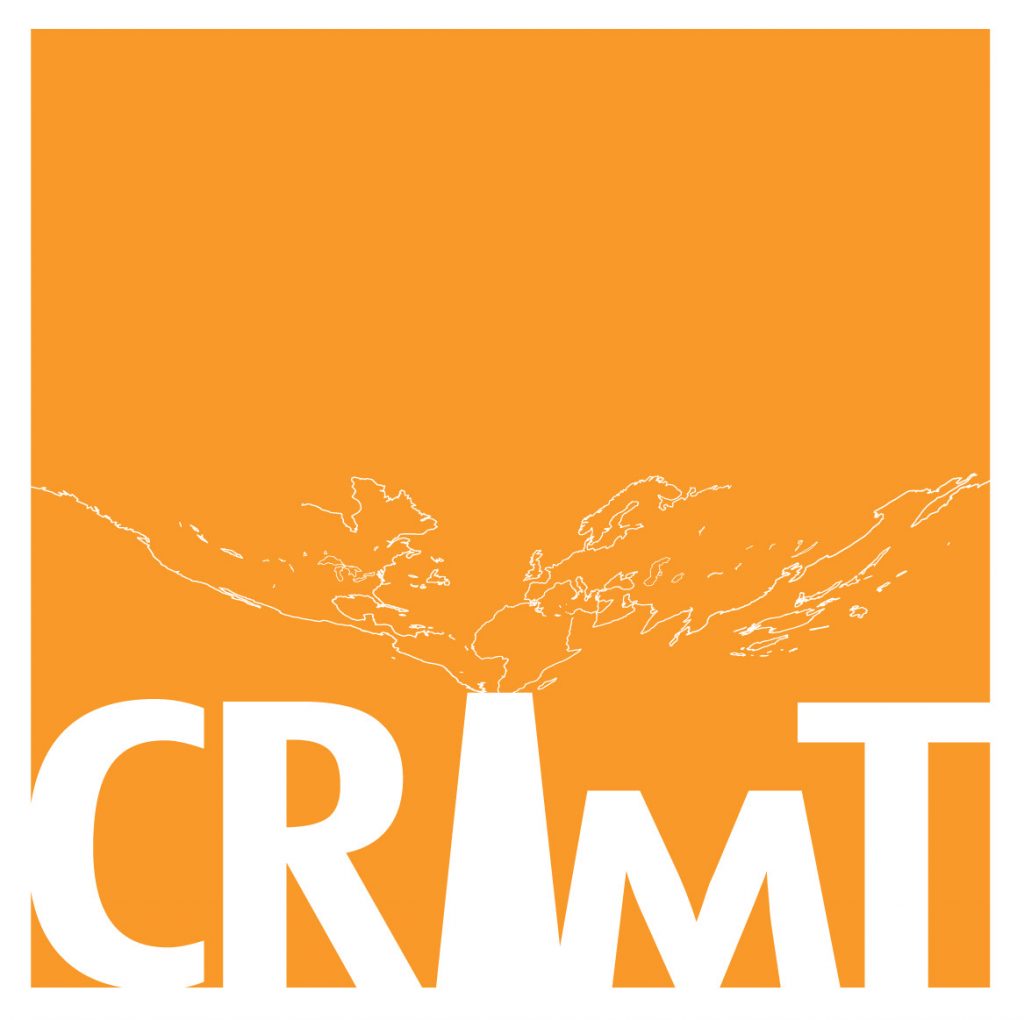

Recipients
2021
Ms Laurence Leduc-Hebert
PhD candidate, Université Laval

Les effets de la néolibéralisation de l’aviation civile canadienne et européenne sur les conditions de travail et d’emploi sur le personnel navigant: une étude comparative
Autrefois symbole du rayonnement de la puissance d’un État, l’aviation civile occidentale est un secteur économique qui a subi de grandes transformations dans les dernières décennies. Sa néolibéralisation eut pour effet de démocratiser le transport par avion, notamment par la multiplication du nombre de transporteurs et de leur modèle d’affaires, mais eut également divers impacts sur le personnel navigant de part et d’autre de l’océan Atlantique. Cette transformation juridique et économique du secteur eut pour conséquence une précarisation des conditions de travail et d’emploi pour une partie croissante des membres d’équipage, intrinsèquement lié à l’hypermobilité des capitaux et de ces travailleuses et travailleurs, de la sous-traitance ou du recours à des formes atypiques de relations de travail (travail autonome, agences de placement de personnel, etc.).
Au sein de ce projet, il sera question de comparer les structures institutionnelles, politiques et juridiques qui encadrent les aspects liés au travail au sein de l’aviation civile canadienne et européenne, dans l’optique d’offrir une meilleure compréhension des réalités émergentes en matière de relations de travail et d’emploi pour ces membres d’équipage. La question de recherche proposée est la suivante : comment la néolibéralisation de l’aviation civile a-t-elle modifié les relations de travail pour le personnel navigant canadien et européen et quelles sont les conséquences de ces réalités sur les conditions de travail et d’emploi pour ces travailleuses et travailleurs de ce secteur économique ?
Il est important de mentionner que ce projet s’intéressera également aux transformations en matière de solidarité au travail intrinsèquement lié à ces réalités, puisque la syndicalisation et autres manifestations de celle-ci deviennent de plus en plus difficiles, en raison de l’atomisation du travail du personnel navigant œuvrant pour un nombre grandissant de transporteurs ayant recours à des formes d’emploi atypiques. En somme, ce projet de thèse vise à offrir une meilleure compréhension des impacts des changements politiques, juridiques et institutionnels des dernières décennies sur les travailleuses et travailleurs œuvrant à titre de personnel navigant.
Bachelière en science politique, Laurence Leduc-Hébert a terminé une maîtrise en droit à l’UQÀM en 2018. Son mémoire portait sur les impacts de la néolibéralisation de l’aviation civile européenne sur les conditions de travail du personnel navigant. Cette recherche lui permit de constater que les politiques économiques occidentales des dernières décennies se soldèrent principalement en une grande précarisation des emplois chez un nombre grandissant de ces travailleuses et travailleurs (personnel navigant technique et commercial). Souhaitant approfondir sa réflexion par rapport à ce sujet, elle choisit les relations industrielles pour son doctorat en raison de leur caractère interdisciplinaire et de la richesse du champ disciplinaire. Enfin, d’un point de vue professionnel, elle a travaillé pendant plus de 10 ans au sein d’une grande entreprise de transport aérien, ce qui lui permit d’acquérir une expérience de terrain inestimable, en plus d’une compréhension accrue des nouvelles réalités en matière d’aviation civile. Elle enseigne désormais la science politique au niveau collégial et collabore sur divers projets multidisciplinaires.
2022
Mr Kai-Hsin Hung
PhD candidate, HEC Montréal

Entitled The workings of planetary computation, the candidate’s thesis focuses on reframing conversations around work and workers in the data economy by examining a new power architecture of data and artificial intelligence (AI) from various vantage points. The study will attempt to answer how it may affect different workers’ quality of work in varied ways, especially workers at two segments of the data value chain of AI’s development, the highly prized model workers like data scientists and the hidden data workers like content moderators. This is done by reconceptualizing AI and its building blocks of digital data as parts of a much more comprehensive global architecture of planetary computation.
This study unfolds the governance layers of planetary computation through its historical, geospatial, processual, relational, and temporal lenses to bring us closer to knowing how it concentrates power at different scales and on the bodies and minds of workers. Within this new techno-geoeconomic context, a select few core geographies, organizations, and workers who benefit from human-centered forms of AI have cornered a disproportionate share of its gains. However, at first, planetary computation may appear as a power of absolute domination, but it is not hegemonic as workers do resist and contest it and attempt various experimentations to rebalance this unjust status quo.
This study is highly relevant in the context of our expanding data economy and could point us to possible new trends ahead. Questions regarding the quality of work have yet to be addressed to give accounts of the tangible outcomes these different workers’ experiences may yield going forward. As part of this, we are confronted with many paradoxes, such as our public investments in a few elite model workers over the numerous data workers, who are usually located in the Majority World, like in India. Thus, these trends can further drive and explain changing patterns of job polarization, coloniality, and new margins of inequalities as we aspire toward more responsible and human-centered AI development and use.
Focusing on two experimentations (Reframing conversations and the reorganization of power), this project is opening new lines of interdisciplinary thinking when it comes to the development potential of conceptual, policies, and practices dedicated to our collective regulation of digital technology toward a more sustainable and inclusive digital future for all workers. It is with pleasure that the jury has awarded Mr.
2023
Ms Ya Gao
PhD candidate, Université de Montréal

Patterns of Work Relations between the Interplay of Power Balance and Interest Distribution in the Gig Economy: A Comparative Case Study in Canada and China’s Food Delivery Sectors
As a buzzword of the 21st century, the gig economy has provoked heated discussion as regards its implication for the world of work. While platform firms enthusiastically promote the flexibility and efficiency offered by the gig economy, some worry that these new business and managerial practices diminish worker power and lead to deteriorating working conditions.
It can be argued that worker power is strongly correlated with better work in terms of improved job quality and worker voice. In contrast, the decline of worker power is correlated with worse work in the gig economy and the growing precarity of the digital workforce. However, little research has actually been done to analyze how differences in worker power influence gig workers’ working conditions, and how worker power is impacted more generally by the gig economy. This paper therefore pursues these two lines of inquiry.
Power is a relational concept, shaped by contextual factors and requiring a comprehensive framework to fully understand it. Drawing on Bélanger & Edwards’ (2007), we propose a theoretical model for understanding the power interaction between platforms and gig workers and its impact on working conditions.
This model sets out three theoretical propositions: first, various structuring factors (technology, product market, and institutional regulation) shape power interactions at work; second, power interactions must integrate capital’s control (via the mechanisms of the market, organizational structure, and labour process) and worker resistance (power strategies, institutional and organizational experimentation) to shape worker power; finally, difference in worker power can lead to better or worse work.
The overarching argument is that gig workers’ power matters for their working conditions. We then highlight that although worker power seems to be diminished under the platform’s various control mechanisms, the new context facilitates workers and their representative agents to develop new power strategies and build strategic capabilities to enhance worker power, which would lead to a better world of work for workers.
While the main thrust of this analysis is to set out this framework, we draw on the growing literature and practical examples to illustrate these lines of inquiry as regards the relationship between platform work, worker power and better or worse work.
Ya Gao holds a bachelor’s degree in management and a master’s degree in economics. After completing her bachelor’s, she pursued her interest in labour studies at Renmin University of China, majoring in labour relations. Her master’s thesis focused on understanding the realization of the labour process in the ride-hailing industry within the gig economy.
The experience of studying work relations in the gig economy kindled Ya Gao’s interest in exploring new work relations, their forming mechanisms, and the definition of good work in the digital age. Driven by this interest, she enrolled in the School of Industrial Relations at the University of Montreal to further investigate these themes. Her thesis project analyzes the patterns of work relations in the gig economy, specifically delving into the interplay of power balance and interest distribution among different actors in the food delivery industry in both Canada and China.
2024
Ms Audrey Blanchette
MA Candidate, Université Laval

Étude qualitative sur les effets de l’organisation du travail postpandémique sur la santé globale des femmes cadres supérieures dans le secteur de l’hôtellerie au Québec
La santé globale des cadres mérite une attention particulière, car les personnes occupant des fonctions de direction jouent un rôle clé dans le bien-être de leurs équipes. Ce sujet est encore peu exploré au Canada, en particulier au regard des femmes cadres. Ces dernières subissent des sources de stress spécifiques, et la pression cumulative qui en résulte peut nuire à leur santé physique, mentale et reproductive. Dans l’industrie hôtelière, les femmes qui accèdent aux postes de cadres font face à une double peine : elles occupent des emplois atypiques et n’ont pas la possibilité de se syndiquer. La nature de leur profession exige qu’elles travaillent de longues heures, souvent avec des horaires extensibles, tandis qu’elles assument généralement une part disproportionnée des tâches domestiques. L’organisation du travail dans l’hôtellerie favorise traditionnellement les hommes, qui bénéficient d’une plus grande flexibilité, leur permettant un engagement quasi total au travail. Cet impératif de disponibilité nuit à la progression de carrière des femmes et accroît leur charge mentale et physique. De plus, et bien que des lois visant l’équité salariale aient été mises en place, les femmes en gestion gagnent, encore aujourd’hui, moins que leurs homologues masculins. Dans une telle organisation du travail, il y a lieu de s’interroger sur l’état actuel de santé globale des femmes cadres dans le secteur de l’hôtellerie.
Cette recherche qualitative repose sur la réalisation d’entretiens semi-dirigés auprès de 12 à 15 femmes cadres dans des hôtels du Québec, issues de divers départements (réception, marketing, RH, etc.). S’appuyant sur la théorie féministe matérialiste, cette étude explorera l’impact du travail domestique sur les exigences professionnelles et son effet sur la santé globale (physique, mentale et reproductive) des femmes. Nous appuyons l’idée que la pandémie a exacerbé les problèmes organisationnels dans l’industrie hôtelière, ce qui pourrait avoir mené à la détérioration de la santé des femmes cadres.
Audrey Blanchette a obtenu un baccalauréat en traduction à l’Université Laval en 2019, puis un diplôme d’études supérieures spécialisées en administration des affaires à HEC Montréal en 2020. Pendant ses études universitaires, elle a découvert l’industrie hôtelière, ce qui l’a amenée à délaisser la traduction pour aspirer à faire carrière dans ce domaine. Au moment où elle terminait ses études à HEC, la pandémie avait grandement affecté son industrie de choix. Les hôtels, très peu occupés, voire fermés, ne recrutaient pas. Cela ne l’a pas arrêtée : elle a trouvé un emploi de superviseure dans un grand hôtel à Whistler en Colombie-Britannique, où elle a vécu pendant deux ans. Forte de sept années d’expérience dans l’industrie hôtelière, dont la gestion de sa propre entreprise, elle a choisi de reprendre ses études à la maîtrise en relations industrielles à l’Université Laval à l’automne 2023. C’est en constatant l’omniprésence des injustices sur le marché du travail qu’elle a décidé de se spécialiser dans cette discipline en optant pour le profil mémoire. Depuis son retour aux études, elle allie un parcours académique à un emploi à temps partiel comme auxiliaire de recherche sur des sujets variés comme le droit du travail, la santé et la sécurité au travail, ainsi que les effets des nouvelles technologies sur les travailleurs et travailleuses. Elle est également auxiliaire d’enseignement, où elle collabore avec la professeure Catherine Le Capitaine à la mise à jour de ses cours de baccalauréat et de maîtrise/doctorat portant sur les femmes et le travail.



